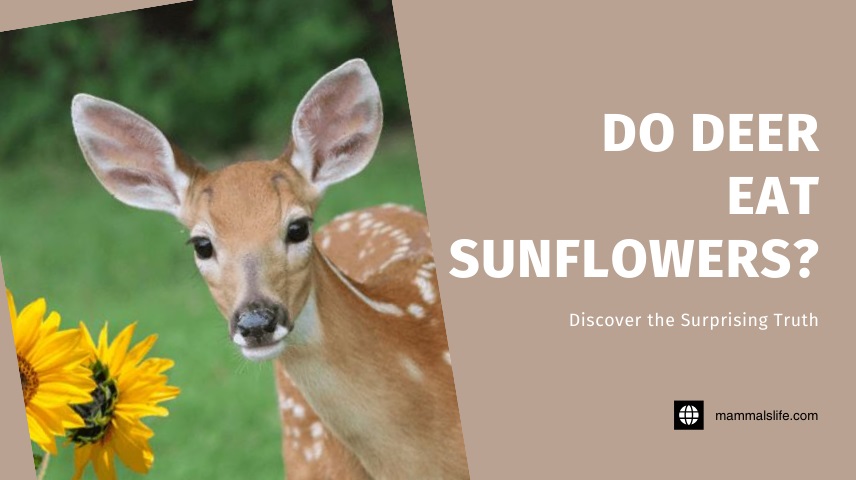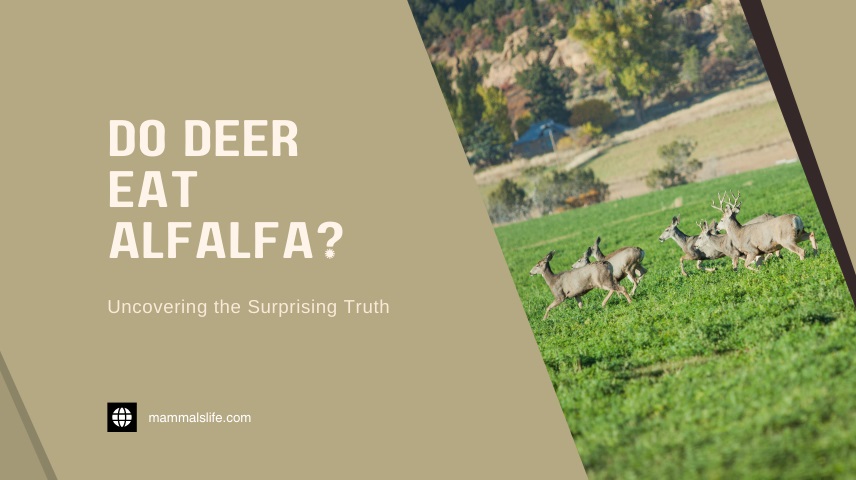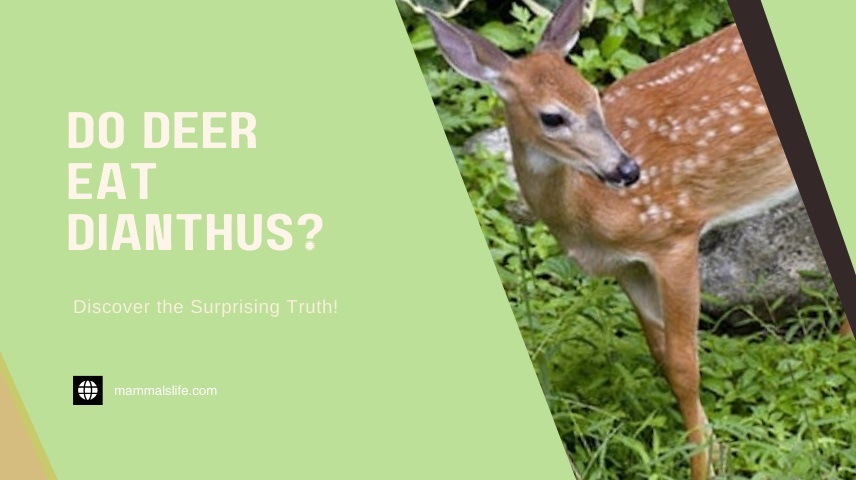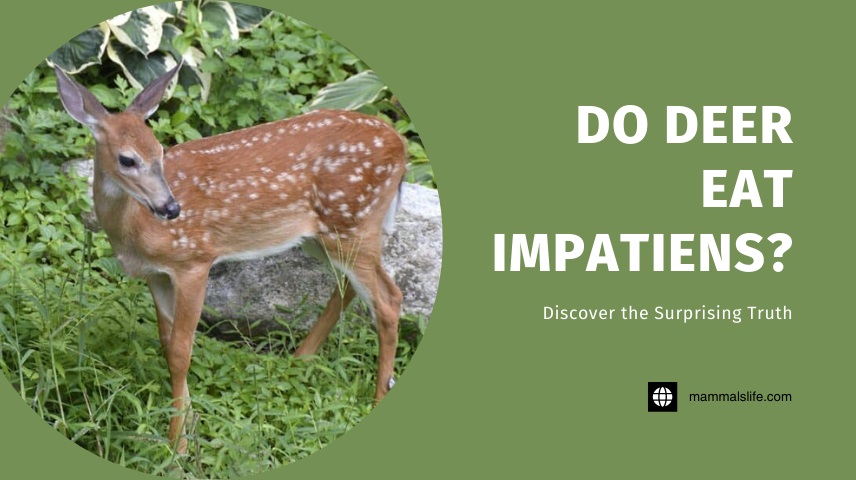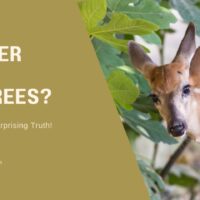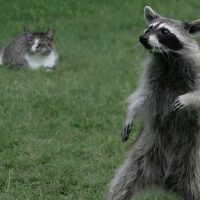Yes, deer eat sunflowers. They particularly enjoy the tender leaves and buds.
Deer are well known for their varied diet, which includes many types of plants. Sunflowers, with their tender leaves and buds, attract these animals. Gardeners often find their sunflower crops damaged by deer. These animals can cause significant harm to sunflower plants, especially during the growing season.
Protecting your garden from deer might require fencing or repellents. Understanding deer behavior can help in planning effective strategies. If you live in an area with a high deer population, it’s crucial to be proactive. Planting deer-resistant plants can also be a good strategy. Sunflowers are not just appealing to humans but also to wildlife, especially deer.
Deer’s Diet Basics
Understanding a deer’s diet helps in managing your garden better. Deer are herbivores and consume a variety of plants. Knowing their common foods and nutritional needs is essential.
Common Foods
Deer eat grasses, leaves, and twigs. They also enjoy fruits and nuts.
- Grasses: Deer munch on various grass types.
- Leaves: They love tender leaves from trees and shrubs.
- Twigs: In winter, twigs become a primary food source.
- Fruits: Apples and berries are deer favorites.
- Nuts: Acorns and other nuts provide essential nutrients.
Nutritional Needs
Deer need a balanced diet to stay healthy. They require proteins, carbohydrates, and fats.
| Nutrient | Source | Importance |
|---|---|---|
| Proteins | Leaves and twigs | For muscle growth |
| Carbohydrates | Grasses and fruits | For energy |
| Fats | Nuts and seeds | For energy storage |
Deer also need minerals and vitamins. These come from a varied diet.
Understanding these basics can help protect your sunflowers. Knowing what deer eat helps in planning your garden.
Sunflower Attraction
Sunflowers are known for their bright, cheerful appearance. But do deer find them attractive? Understanding the relationship between deer and sunflowers can help gardeners and farmers protect their plants.
Appeal To Deer
Deer are naturally drawn to sunflowers. The vibrant yellow petals and large heads catch their attention. This visual appeal is hard for deer to resist.
Nutritional Value
Sunflowers provide a rich source of nutrition for deer. They are high in protein and fiber, making them a nutritious snack. Here’s a breakdown of the nutritional content:
| Nutrient | Amount per 100g |
|---|---|
| Protein | 20g |
| Fiber | 8g |
| Fat | 14g |
| Carbohydrates | 24g |
These nutrients help deer build strength and stay healthy. Sunflowers also contain essential vitamins and minerals. These include vitamin E, magnesium, and selenium.
In summary, the attraction of sunflowers to deer is twofold. Their bright appearance draws deer in, and their rich nutritional content keeps them coming back.
Seasonal Eating Patterns
Deer have distinct eating patterns throughout the year. Their diet shifts with the seasons. They adapt their food choices based on what is available. This includes their interest in sunflowers.
Spring And Summer
In spring, deer emerge from their winter shelters. They seek fresh vegetation to regain strength. Sunflowers become a prime target for them. These plants are rich in nutrients. Deer love the young, tender sunflower shoots.
During summer, sunflowers continue to attract deer. The plants are lush and full of energy. Deer find the leaves and stems irresistible. They often visit sunflower fields during early morning and late evening.
| Season | Deer Activity | Sunflower Impact |
|---|---|---|
| Spring | High | Young shoots eaten |
| Summer | High | Leaves and stems eaten |
Fall And Winter
In fall, deer begin preparing for winter. Their diet shifts to more fibrous plants. Sunflowers start to dry out. Yet, deer still eat the remaining sunflower seeds. These seeds are high in fats and help them build energy reserves.
During winter, food becomes scarce. Deer often rely on stored fat. They may dig through snow for any remaining sunflower seeds. These seeds offer essential nutrients during harsh conditions.
| Season | Deer Activity | Sunflower Impact |
|---|---|---|
| Fall | Moderate | Seeds eaten |
| Winter | Low | Seeds occasionally found |
Understanding deer’s seasonal eating patterns is key. This knowledge helps in managing sunflower crops better.
Garden Protection Tips
Sunflowers can be a delightful addition to any garden. Sadly, deer also love them. Protecting your garden from these hungry visitors is essential. Below are some effective tips to keep your sunflowers safe.
Fencing Options
Fences are the most reliable option to keep deer out. They should be at least 8 feet tall. Deer can jump high, so height matters.
- Wooden Fences: These are strong and durable. Make sure there are no gaps.
- Wire Mesh Fences: Affordable and easy to set up. Use a strong mesh to deter deer.
- Electric Fences: These can give a mild shock. They are effective but need maintenance.
Ensure your fence is tall and sturdy. Check it regularly for damage.
Natural Deterrents
Natural deterrents can also help keep deer away from your sunflowers. They are safe and eco-friendly.
- Plant Aromatic Herbs: Deer dislike strong smells. Plant herbs like rosemary and mint around your garden.
- Use Deer Repellent Sprays: These sprays have a smell deer hate. Spray them around your garden often.
- Hang Soap Bars: Soap bars have a strong scent. Hang them around your garden to deter deer.
Combining these methods can offer better protection. Rotate them to keep deer guessing.
| Method | Pros | Cons |
|---|---|---|
| Wooden Fences | Strong, Durable | Expensive, Needs Installation |
| Wire Mesh Fences | Affordable, Easy Setup | Less Aesthetic |
| Electric Fences | Very Effective | Needs Maintenance |
| Plant Aromatic Herbs | Eco-Friendly, Easy | Requires Regular Planting |
| Deer Repellent Sprays | Easy to Apply | Needs Frequent Application |
| Hang Soap Bars | Simple, Cheap | Less Effective Alone |
Alternative Food Sources
If you have noticed deer nibbling on your sunflowers, it might be time to consider alternative food sources for these gentle creatures. By offering other plants and following smart feeding strategies, you can protect your sunflowers while ensuring deer get their meals.
Deer-friendly Plants
Planting deer-friendly alternatives can be an effective way to divert deer from your garden. Here are some plants that deer find irresistible:
- Clovers: High in protein and a deer favorite.
- Alfalfa: Nutritious and easy to grow.
- Chicory: Helps with deer digestion.
- Bluegrass: Soft and appealing to deer.
These plants can be strategically placed away from your sunflowers. This can lure the deer to safer areas.
Feeding Strategies
Adopting specific feeding strategies can further help in keeping deer away from your sunflowers:
- Designated Feeding Zones: Create areas where deer can safely feed. This keeps them away from your garden.
- Seasonal Planting: Plant deer-friendly plants seasonally. This ensures a constant food supply for deer.
- Rotating Crops: Rotate crops to keep deer interested in alternate plants. This reduces the risk to your sunflowers.
These strategies can create a balanced environment. Deer get their food while your garden stays intact.
Frequently Asked Questions
Do Deer Eat Sunflowers?
Yes, deer do eat sunflowers. They particularly enjoy the leaves and seeds.
Are Sunflowers Safe For Deer?
Sunflowers are safe for deer to eat. They are a natural food source.
How To Protect Sunflowers From Deer?
Use deer repellents or fencing. Plant deer-resistant plants around sunflowers.
Do Deer Eat Sunflower Seeds?
Yes, deer eat sunflower seeds. They find them nutritious and tasty.
When Do Deer Eat Sunflowers?
Deer eat sunflowers primarily in the early morning or late evening.
Can Deer Damage Sunflower Crops?
Yes, deer can cause significant damage to sunflower crops, affecting growth and yield.
Conclusion
Deer do eat sunflowers, posing a challenge for gardeners. Protecting your sunflower garden is essential for a thriving display. Use fences, repellents, or deer-resistant plants to safeguard your sunflowers. With these strategies, you can enjoy beautiful, deer-free sunflower blooms. Happy gardening!

